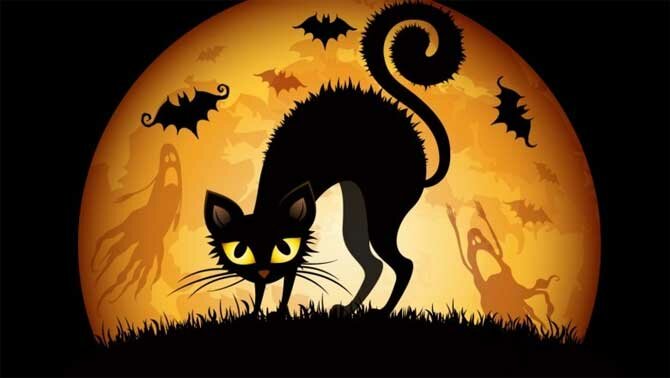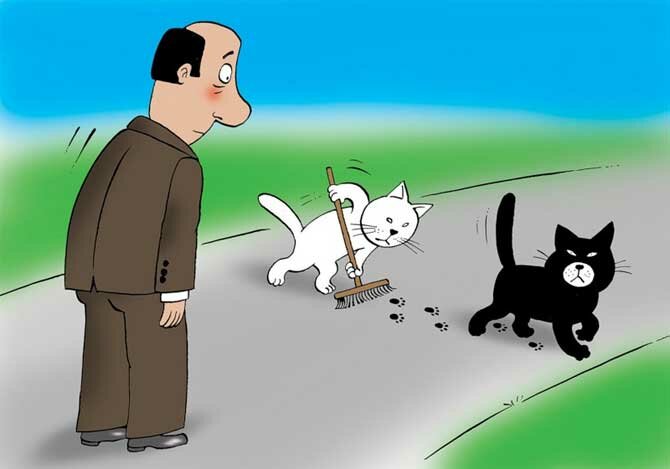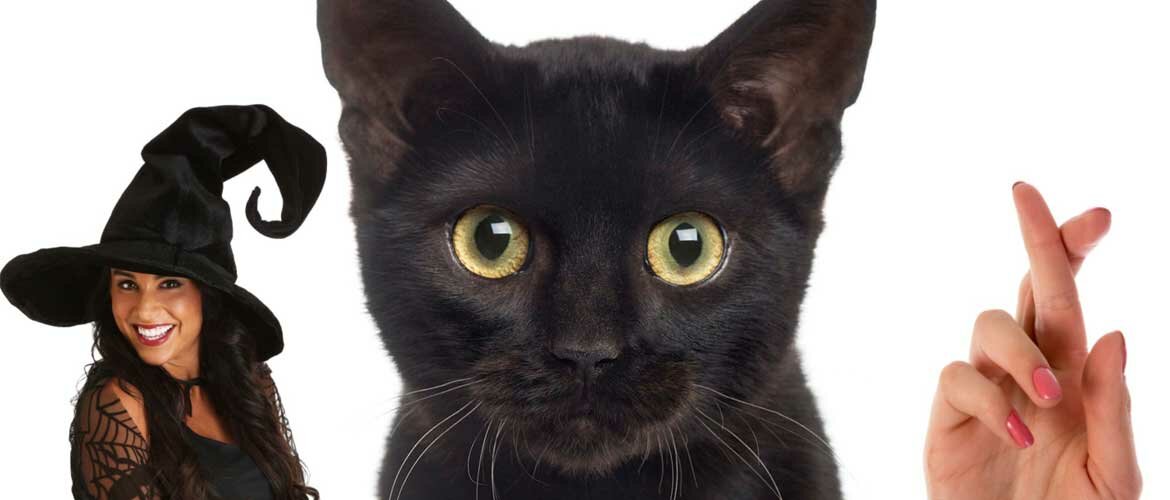English superstitions and folk signs are rooted in ancient traditions and beliefs that have survived to this day. These customs seem unexpected and curious, given the image of the pragmatic people of Great Britain.
One of the oldest English practices is to say the word “rabbit” or “white rabbit” on the first day of the month. This is considered a guarantee of good luck, but if you forget to do this, you need to “summon the rabbit” before going to bed that night. Meeting a black cat also brings good luck to the British.

Among the negative signs, one can note the folding of a handkerchief before putting it in a pocket, which is considered bad form and leads to financial problems. Leaving an open umbrella indoors is also considered wrong, as it drives away good luck.
English superstitions include other ominous omens, such as the carrying of garden tools, which is considered a harbinger of the death of a loved one, and the coincidence of the first letter of the spouses’ surnames, which supposedly leads to an unhappy marriage.
A meeting with a left-handed person or a cripple on the first day of the week portends great trouble, and a cat sneezing in the house means illness for all household members. Ravens are also associated with numerous English beliefs, especially that when they fly away from the Tower, the last days of England will come.

Bats have been considered witches since the Middle Ages, and the English believe that the iridescent spot of a peacock feather can protect them from the evil eye.
The English neighbors, the Irish, are notorious for their superstitions. In the past, they tested newborns to see if they were human children or crafty fairies by submerging them knee-deep in water. The Irish believed that werewolves and otherworldly babies were afraid of water and could also be revealed through their craving for bagpipe music.
Today, Irish superstitions are less pronounced, but the Irish still attach particular importance to the magical properties of iron and its “tamers” – blacksmiths. It is believed that blacksmiths are able to drive away evil spirits or cure diseases. Interestingly, Slavic beliefs, on the contrary, associate blacksmiths with evil spirits.

Superstitions also appear in the English wedding tradition. The bride and groom often adhere to the saying “something old, something new, something borrowed, something blue” to attract good luck and happiness in their married life. “Something old” symbolizes a connection with the past, “something new” – optimism and hope for the future, “something borrowed” – the support of friends and family, and “something blue” – loyalty and purity.
Despite advances in science and technology, many English people still follow old traditions and superstitions. These signs and customs are part of the national heritage and cultural history that lives on in the hearts and minds of the people of Great Britain.
In conclusion, the folk beliefs and superstitions of England and Ireland are an amazing combination of old beliefs and traditions that remain alive and relevant among the modern population. They reflect the rich cultural history of the peoples of the British Isles and continue to amaze with their vitality and attractiveness.

One of the most famous Irish superstitions has to do with leprechauns. Depicted as little old men in green suits, these mythical creatures are elven blacksmiths who hide their treasures at the end of the rainbow. According to folklore, leprechauns can grant three wishes to whoever catches them.
Halloween, originally derived from the Irish holiday of Samhain, is also associated with numerous superstitions. On the night of November 1, the British and Irish believe that the border between the world of the living and the world of the dead becomes thinner, which allows spirits and ghosts to move between these worlds. Traditions such as carving pumpkin lanterns and dressing up in scary costumes have their roots in superstitions related to warding off evil spirits.
Another example of English superstition concerns “Friday the thirteenth”, which is considered an unlucky number and a day when troubles and troubles occur. It is believed that this fear comes from medieval Christian traditions associated with the number 13 and the betrayal of Judas at the Last Supper.

Of course, these folk beliefs and superstitions do not exhaust the entire cultural mosaic of England and Ireland, but they are an important and fascinating part of the national heritage. They are a link between the past and the present, connecting generations and helping to preserve the cultural identity of the peoples of the British Isles.
To be continued…







Only registered users can leave comments